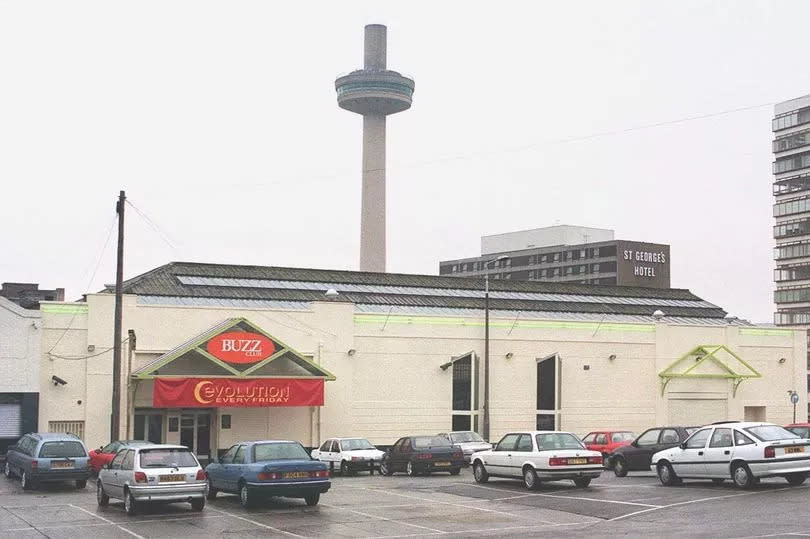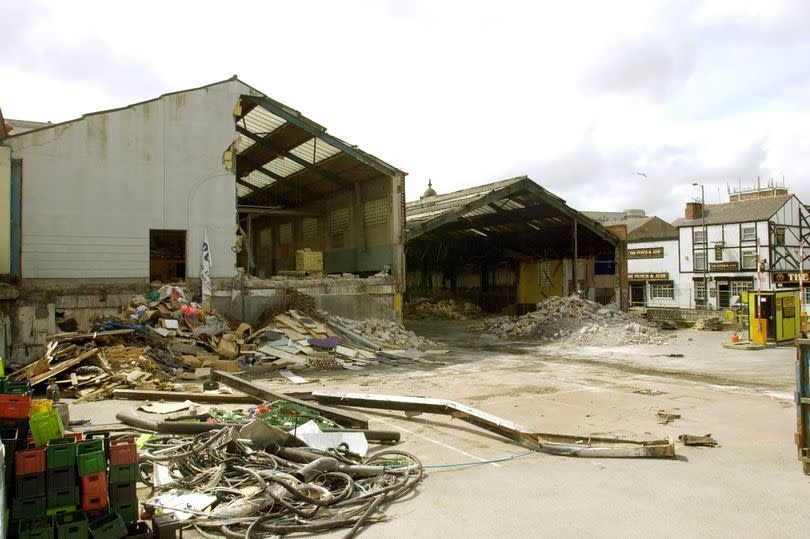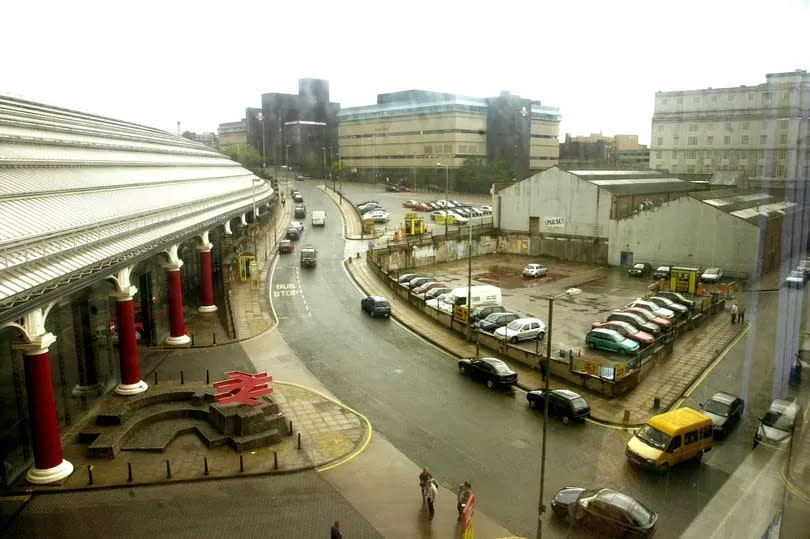Troubled Liverpool nightclub where Saturday nights were 'always a big one'

It's now been over 30 years since a troubled nightclub where Saturday nights were "always a big one" opened in Liverpool city centre.
In the early 1990s, commuters said goodbye to the Ribble Bus Station on Skelhorne Street, near Lime Street Station and hello to a new nightclub. In 1992, Buzz officially opened in the city centre in what was one of the "biggest entertainment and business developments seen in Liverpool for some years."
It was Merseyside nightclub owners Fallows who were behind the club which had been derelict before its transformation. Welcoming thousands of clubbers through the 90s, many will remember heading there for a night out or walking past when commuting to and from work.
READ MORE: Scenes from Hollywood Bowl everyone will remember from growing up in 90s Liverpool
READ MORE: Final days inside Coconut Grove nightclub before it was demolished
But the club - and the latter businesses that followed - wasn't without its troubles. In its time, the site itself was at centre of a number of incidents surrounding violence, drug taking and certain licences being revoked.
On February 18, 1992, the Liverpool Daily Post reported: "The old Skelhorne Street bus station - closed over two years ago - is now home to The Buzz nightclub, the first phase of a 6m development which will eventually incorporate a conference centre and 105-bed hotel. The nightclub opens it doors next week, while the conference centre upstairs is due to open in late June.

"Merseyside nightclub owners Fallows are behind the scheme to regenerate one of Liverpool's best-known sites, although they are hoping to pass on the hotel site to a separate developer. If all goes according to plan, the hotel could be open by the end of the year. In total, the three parts of the development are expected to create 180 jobs."
At the time, Geoff Fallows said: "This site was derelict for two years and has taken a lot of work and money to redevelop. We were keen to invest in Liverpool once again and we believe it will add another dimension to nightlife in the city centre."
Do you remember Buzz on Skelhorne Street? Let us know in the comments section below.
Buzz DJ and promotions manager John Cotton explained that the plush 1,000-capacity club offered a 127-space attended car park and that a 15-kilowatt sound system had been installed together with lights at a cost of £350,000.
Many will remember nights out at Buzz nightclub through the years. In its early days, the site was very popular among clubbers.
A few weeks after opening in March 1992, the team published a short notice in the ECHO apologising for not being able to let more clubbers inside. It reads: "The directors and management of buzz would like to apologise to the 400 people who were turned away on Friday and Saturday nights.

"Unfortunately, the club was full to its legal capacity and we had no other choice but to look the doors. We hope this did not spoil your weekend too much and look forward to seeing you this weekend."
At one point, Monday nights at Buzz were known as student night, with entry half price for those studying in the city. Thursdays were known as City FM nights, Fridays were disco night and Saturdays were a "massive dance party."
Back in 2012, DJ Lee Butler, who worked at Buzz, was featured in the ECHO alongside others who were part of Liverpool's 90s nightclub boom. At the time, he said: "I left The State and went to the Buzz for 12 months.
"The Buzz Club, in Skelhorne Street, played host to the Best of British all-nighters and The Radio City Thursday nights. It was never taken as seriously as the other clubs in Liverpool."
He added: "But Saturday nights there were always a big one. The Radio City nights were a legendary night in Liverpool."
In the next decade, the site became known as Zub, Metro and then Pulse. But through the years, the club was fairly troubled, being at the centre of a number of incidents.
These included a catalogue of violent incidents and drug taking, as well as different licenses being revoked. In 2001, arsonists caused thousands of pounds worth of damage to the Pulse nightclub, and 30 firefighters battled through the night to contain the flames.
The building has since been demolished. In recent years, the area around Skelhorne Street and Lime Street has seen much redevelopment.
Unseen for years, we recently rediscovered these images of the nightclub site in its latter years. They show what the site once looked like outside when it was operating and how the building looked before its demolition.
Receive newsletters with the latest news, sport and what's on updates from the Liverpool ECHO by signing up here

 Yahoo News
Yahoo News 
